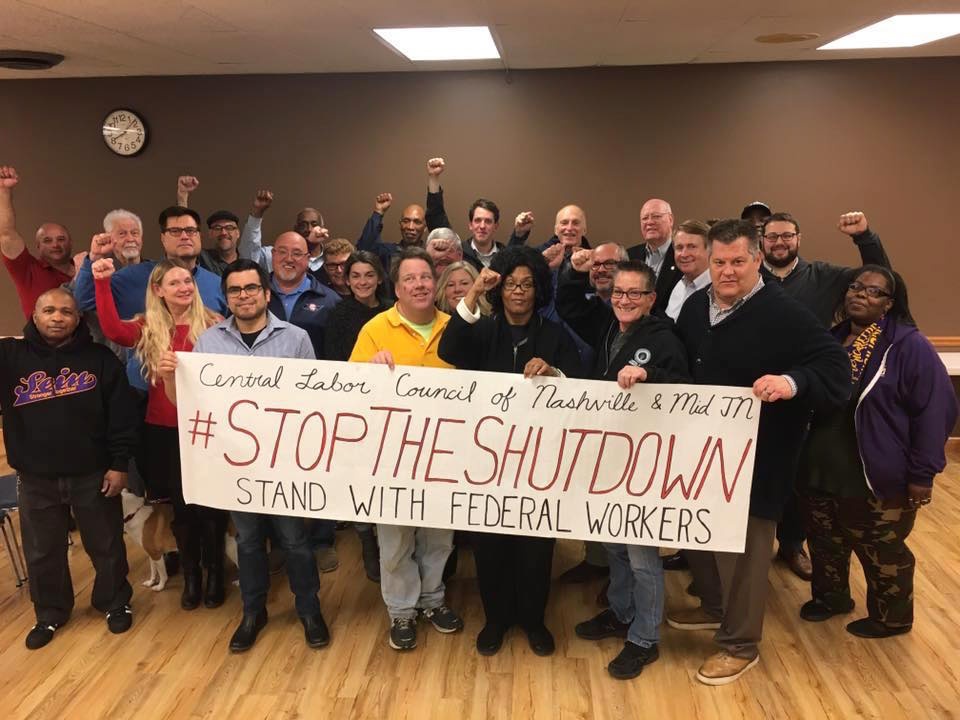INSTITUTE INDEX: The racial injustice of the government shutdown

Members of the Central Labor Council of Nashville and Middle Tennessee are among those calling for an end to the federal government shutdown, now the longest ever. While millions of families are feeling economic pain from the shutdown, the burden falls particularly hard on African Americans. (Photo from the Council's Facebook page.)
Rank of the ongoing partial federal government shutdown ordered by President Trump — an effort to get congressional funding for an unpopular $5.7 billion wall along the Mexican border — among the longest in U.S. history: 1
Total number of federal workers who are either furloughed or working without pay because of the shutdown: 800,000
Number of these workers who earn less than $50,000 a year: almost 111,000
Amount in pay the average affected federal worker has already missed as a result of the shutdown: $5,000
Number of shutdown-affected federal workers in the 13 Southern states*: 153,200
Percent of the U.S. population that's black: 12
Percent of the federal government workforce that's black, a disparity explained by a history in which African Americans subject to racial discrimination in the private sector turned to public employment: more than 18
Percent of those holding federal Senior Executive Service positions — a civil service classification equivalent to general officer or flag officer ranks in the U.S. Armed Forces — who are black: 21
Number of government contractors affected by the shutdown: 4 million
Percent of all small businesses in the U.S. that are black-owned: 2.1
Percent of registered federal contracting firms that are black-owned: 11.7
Median wealth of white households in the U.S.: over $116,000
Of black households: $1,700
Date on which Congress passed a bill to provide for back pay for federal workers affected by the shutdown: 1/11/2019
Amount the legislation provides for affected contractors: $0
Date on which the Congressional Black Caucus held a press call to demand an end to the shutdown, with members citing among other factors its racially disparate impacts: 1/11/2019
* Facing South counts the following states as part of the region: Alabama, Arkansas, Florida, Georgia, Kentucky, Louisiana, Mississippi, North Carolina, South Carolina, Tennessee, Texas, Virginia, and West Virginia.
(Click on figure to go to source.)
Tags
Sue Sturgis
Sue is the former editorial director of Facing South and the Institute for Southern Studies.
